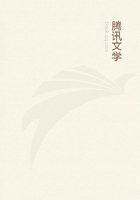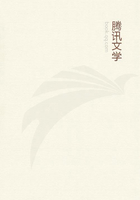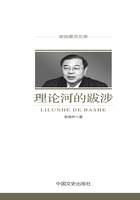Euscarra - Basque not Irish - Sanskrit and Tartar Dialects -A Vowel Language - Popular Poetry - The Basques - Their Persons -Basque Women.
I now entered upon the year 1838, perhaps the most eventful of all those which I passed in Spain.The despacho still continued open, with a somewhat increasing sale.Having at this time little of particular moment with which to occupy myself, I committed to the press two works, which for some time past had been in the course of preparation.These were the Gospel of St.Luke in the Spanish Gypsy and the Euscarra languages.
With respect to the Gypsy Gospel I have little to say, having already spoken of it in a former work (THE ZINCALI): it was translated by myself, together with the greater part of the New Testament, during my long intercourse with the Spanish Gypsies.Concerning the Luke in Euscarra, however, it will be as well to be more particular, and to avail myself of the present opportunity to say a few words concerning the language in which it was written, and the people for whom it was intended.
The Euscarra, then, is the proper term for a certain speech or language, supposed to have been at one time prevalent throughout Spain, but which is at present confined to certain districts, both on the French and Spanish side of the Pyrenees, which are laved by the waters of the Cantabrian Gulf or Bay of Biscay.This language is commonly known as the Basque or Biscayan, which words are mere modifications of the word Euscarra, the consonant B having been prefixed for the sake of euphony.Much that is vague, erroneous, and hypothetical, has been said and written concerning this tongue.The Basques assert that it was not only the original language of Spain, but also of the world, and that from it all other languages are derived; but the Basques are a very ignorant people, and know nothing of the philosophy of language.Very little importance, therefore, need be attached to any opinion of theirs on such a subject.A few amongst them, however, who affect some degree of learning, contend, that it is neither more nor less than a dialect of the Phoenician, and, that the Basques are the descendants of a Phoenician colony, established at the foot of the Pyrenees at a very remote period.Of this theory, or rather conjecture, as it is unsubstantiated by the slightest proof, it is needless to take further notice than to observe that, provided the Phoenician language, as many of the TRULYLEARNED have supposed and almost proved, was a dialect of the Hebrew, or closely allied to it, it were as unreasonable to suppose that the Basque is derived from it, as that the Kamschatdale and Cherokee are dialects of the Greek or Latin.
There is, however, another opinion with respect to the Basque which deserves more especial notice, from the circumstance of its being extensively entertained amongst the literati of various countries of Europe, more especially England.I allude to the Celtic origin of this tongue, and its close connexion with the most cultivated of all the Celtic dialects, the Irish.People who pretend to be well conversant with the subject, have even gone so far as to assert, that so little difference exists between the Basque and Irish tongues, that individuals of the two nations, when they meet together, find no difficulty in understanding each other, with no other means of communication than their respective languages; in a word, that there is scarcely a greater difference between the two than between the French and the Spanish Basque.Such similarity, however, though so strongly insisted upon, by no means exists in fact, and perhaps in the whole of Europe it would be difficult to discover two languages which exhibit fewer points of mutual resemblance than the Basque and Irish.
The Irish, like most other European languages, is a dialect of the Sanskrit, a REMOTE one, as may well be supposed.
The corner of the western world in which it is still preserved being, of all countries in Europe, the most distant from the proper home of the parent tongue.It is still, however, a dialect of that venerable and most original speech, not so closely resembling it, it is true, as the English, Danish, and those which belong to what is called the Gothic family, and far less than those of the Sclavonian; for, the nearer we approach to the East, in equal degree the assimilation of languages to this parent stock becomes more clear and distinct; but still a dialect, agreeing with the Sanskrit in structure, in the arrangement of words, and in many instances in the words themselves, which, however modified, may still be recognized as Sanskrit.But what is the Basque, and to what family does it properly pertain?
To two great Asiatic languages, all the dialects spoken at present in Europe may be traced.These two, if not now spoken, still exist in books, and are, moreover, the languages of two of the principal religions of the East.I allude to the Tibetian and Sanskrit - the sacred languages of the followers of Buddh and Bramah.These tongues, though they possess many words in common, which is easily to be accounted for by their close proximity, are properly distinct, being widely different in structure.In what this difference consists, I have neither time nor inclination to state; suffice it to say that the Celtic, Gothic, and Sclavonian dialects in Europe belong to the Sanskrit family, even as in the East the Persian, and to a less degree the Arabic, Hebrew, etc.; whilst to the Tibetian or Tartar family in Asia pertain the Mandchou and Mongolian, the Calmuc and the Turkish of the Caspian Sea; and in Europe, the Hungarian and the Basque PARTIALLY.

